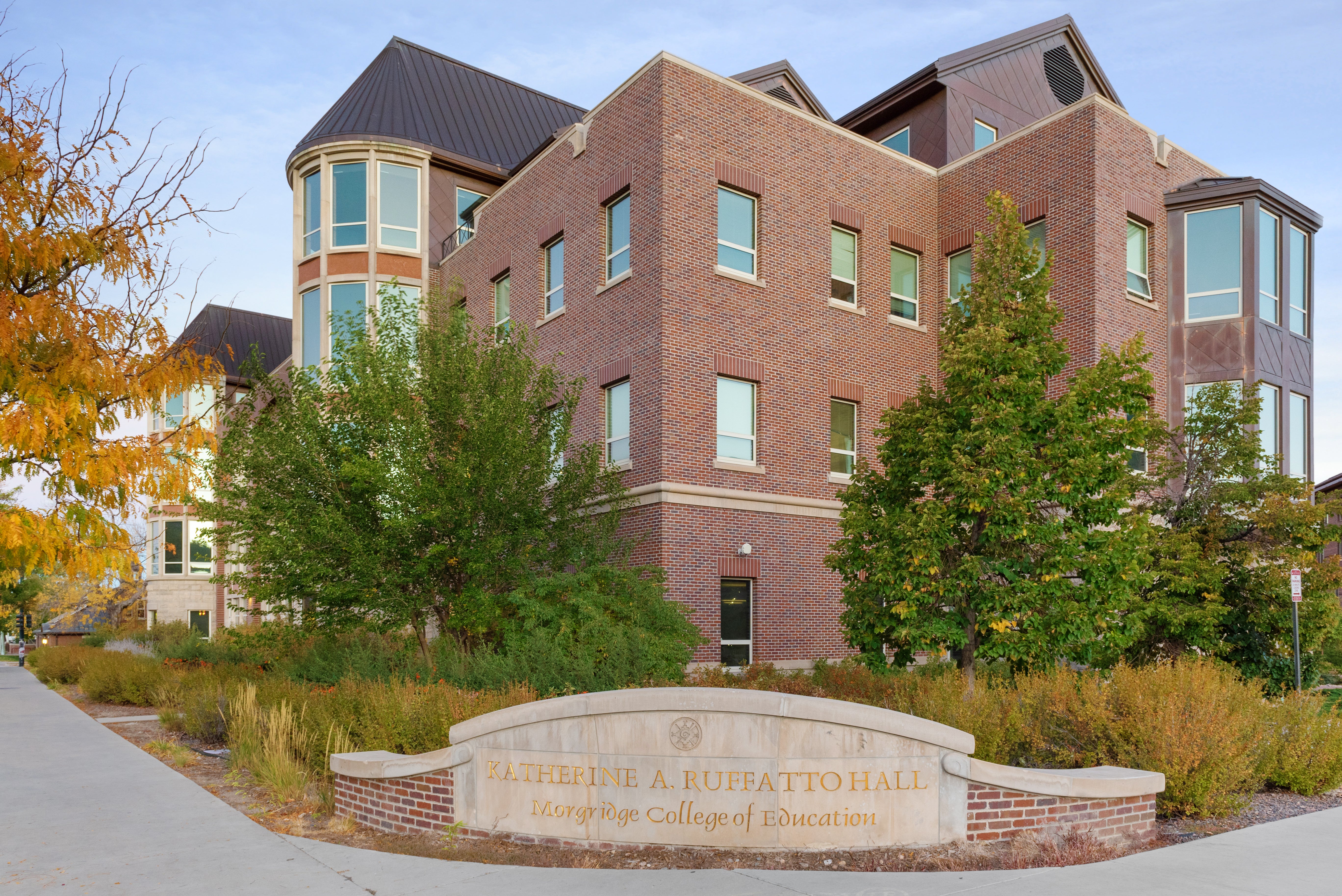
Christina Mulcahy
Senior Research Associate
What I do
I am a Senior Research Associate at the Marsico Institute for Early Learning. Alongside the Principal Investigators, I lead intervention studies focused on the professional development of early childhood teachers through projects funded by the Institute of Education Sciences – designing and presenting engaging professional development content, supporting instructional coaches to provide individualized feedback to intervention teachers, and developing observational and survey tools to collect data on various components of the intervention. Additionally, I co-lead trainings to conduct classroom observations and child assessments such as the COEMET and REMA. Through extensive and detailed data analysis protocols, I support the development and improvement of the digital version of our premier child assessment of math learning.
Specializations
Early Childhood Math Education
Early Childhood Science Education
Teacher Professional Development
Curriculum Studies
Professional Biography
Dr. Christina Mulcahy studied Educational Psychology – Applied Developmental Science, as an IES predoctoral fellow at the University of Virginia. Prior to joining the Marsico Institute, she worked in early childhood research at the Center for Advanced Study of Teaching and Learning (CASTL) and WestEd and taught seventh grade language and literature in the Dominican Republic. She has extensive experiences conducting educational research and professional development including administering assessments to children; conducting classroom observations; managing and training data collectors and coordinating large scale data collection; participant recruitment; developing and delivering curricula and interventions; data analysis; and developing and delivering online and in-person professional development workshops and courses for early childhood teachers. Her research interests focus on early childhood education practice and policy, self-regulation and executive function in the educational context, early math instruction and intervention, teacher-child interactions and relationships, and professional development for early childhood teachers. She has published work in education and early childhood focused journals including AERA Open, Early Childhood Research Quarterly, and Journal of Research on Educational Effectiveness.
Degree(s)
Ph D., Educational Psychology – Applied Developmental Science, 2019
Research
Areas of Research
Early Math
Early Science
Child Development
Classroom Observation
Teacher Professional Development
Featured Publications
Mulcahy, C., Day Hess, C. A., Clements, D. H., Ernst, J. R., Pan, S. E., Mazzocco, M. M. M., & Sarama, J. (2021). Supporting Young Children’s Development of Executive Function Through Early Mathematics. Policy Insights from the Behavioral and Brain Sciences, 8(2), 192–199. https://doi.org/10.1177/23727322211033005
Whittaker, J. V., Kinzie, M. B., Vitiello, V., DeCoster, J., Mulcahy, C., & Barton, E. A. (2020). Impacts of an Early Childhood Mathematics and Science Intervention on Teaching Practices and Child Outcomes. Journal of Research on Educational Effectiveness, 13(2), 177–212. https://doi.org/10.1080/19345747.2019.1710884
DeFlorio, L., Klein, A., Starkey, P., Swank, P. R., Taylor, H. B., Halliday, S. E., Beliakoff, A., & Mulcahy, C. (2019). A study of the developing relations between self-regulation and mathematical knowledge in the context of an early math intervention. Early Childhood Research Quarterly, 46, 33–48. https://doi.org/10.1016/j.ecresq.2018.06.008
Vitiello, V. E., Whittaker, J. V., Mulcahy, C., Kinzie, M. B., & Helferstay, L. (2019). Reliability and Validity of the Preschool Science Observation Measure. Early Education and Development, 30(2), 196–215. https://doi.org/10.1080/10409289.2018.1544814
Hamre, B. K., Partee, A., & Mulcahy, C. (2017). Enhancing the Impact of Professional Development in the Context of Preschool Expansion. AERA Open, 3(4), 2332858417733686. https://doi.org/10.1177/2332858417733686
Performances
Key Projects
ULTIMATE – Understanding Learning Trajectories in Mathematics: Advancing Teacher Education
ULTIMATE is a new research project that will support teachers in deepening their understanding of how children learn mathematics and how to incorporate this understanding into their classrooms to help children develop math ideas and skills—joyfully. Over two decades, Drs. Clements and Sarama have built a professional development tool, called Learning and Teaching with Learning Trajectories, or [LT]2. The DU team will work with teachers, blending high quality in-person professional development and classroom-based coaching with teachers' use of the [LT]2 tool. The team will investigate the impacts of the intervention on teachers and students.
Making More of Mathematics: A DREME Network Project
Funded by Heising-Simons Foundation as part of the DREME Network (April 2015 – Present) The goal of this project is to systematically evaluate whether carefully developed mathematics January 2018 Day-Hess - 3 activities contribute to the development of EF and mathematics, and whether these activities affect gains in math and EF differently, depending on children’s initial levels of EF and math skills. Work on the project involves multiple levels of development, behavioral coding, and analysis of early childhood mathematics activities. The ultimate goal is to develop instructional materials and identify teaching practices that simultaneously promote the development of children’s mathematical thinking and executive function.
Early Mathematics Assessment: Continued Evaluation of the Research-Based Early Mathematics Assessment (REMA) and creation of the REMA-Short Form.
Developed to study children’s development and learning across all important areas of early math, the Research-Based Early Math Assessment emerged from over two decades of research and development. All versions of the REMA are diagnostic assessments measuring children’s mathematical knowledge and skills along research-based developmental progressions (National Research Council, 2007; Sarama, 2009). The measures use an individual interview format with explicit protocol, coding, and scoring procedures.
EPIC: Evaluating the Efficacy of a Preschool Interdisciplinary Curriculum (Connect4Learning)
Funded by the Institute of Education Sciences, the aim of the EPIC four-year longitudinal project is to evaluate the efficacy of the Connect4Learning (C4L) curriculum when it is implemented as intended. C4L is an interdisciplinary early childhood prekindergarten curriculum, which aims to synthesize research-based approaches in four domains of learning: literacy, mathematics, science, and social-emotional development. C4L uses an interdisciplinary approach to address growing concerns that most preschool instructional time is devoted to literacy at the expense of other content areas, particularly math and science. We are partnering with 60 classrooms for this study, including 30 C4L classrooms and 30 “business as usual” classrooms. C4L teachers will receive regular professional development on the curriculum and will receive regular coaching to support curriculum implementation and fidelity. Data will include classroom observations in core domains, teacher surveys, coaching data, and child assessments in all core domains.


